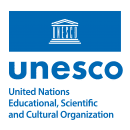UNESCO | Request for end of project evaluation
الوصف الوظيفي
لقد انتهت صلاحية هذه الوظيفة في 2017-06-25
تصفح أحدث الوظائف
عند التقدم لاية وظيفة عن طريق الانترنت، لا تقم بإعطاء معلومات بطاقة الأعتماد او أية معلومات بنكية / مالية لصاحب عمل. نصيحة من جوبس لحمايتك :
آخر الوظائف المعلنة بواسطة
UNESCO-منظمة الأمم المتحدة للتربية والعلم والثقافة
المسمى الوظيفي
تاريخ النشر
Cultural Heritage Support Officer
رام الله والبيرة
15, Jul, 2024
ICT ASSISTANT
رام الله والبيرة
20, Apr, 2023
Driver
رام الله والبيرة
2, Feb, 2022
Project Officer - TVET
رام الله والبيرة
30, Jun, 2021
Consultant to undertake a feasibility study
رام الله والبيرة
16, Jun, 2021
Software Engineer Consultant
رام الله والبيرة
19, May, 2021
Consultant - Photographer and video Producer
رام الله والبيرة
9, May, 2021
Project Assistant
رام الله والبيرة
15, Apr, 2021









